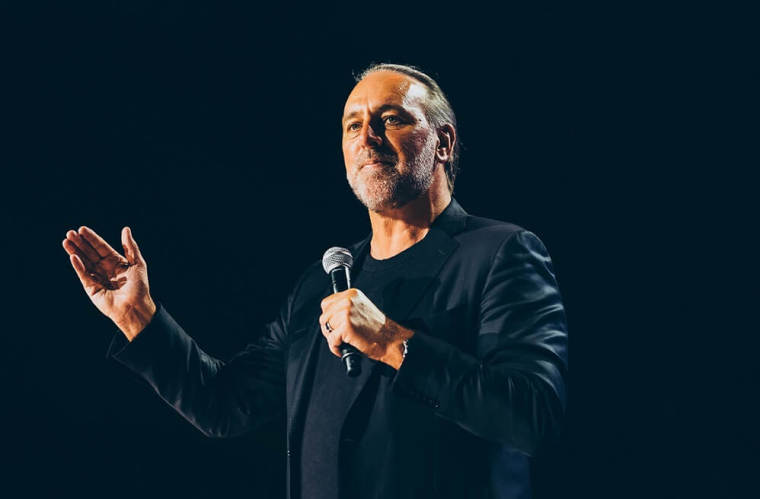
Hillsong Church founder Brian Houston has urged his fellow pastors to stand up against Australia's COVID-19 restrictions, claiming Christians are being discriminated against as numbers at church services remain limited.
In a series of social media posts, the Sydney, Australia-based pastor criticized the New South Wales government over restrictions on church service attendance while other coronavirus restrictions are being loosened.
“It’s time church leaders unite to take a stand. We are all committed to keeping people safe, but it seems churches are not even being considered for a steady easing of restrictions,” Houston wrote on Instagram.
Under the current NSW guidelines, church services may not have more than 100 attendees. In contrast, beginning this December, weddings can have up to 300 guests. Hospitality venues may host a maximum of 500 people seated at outdoor events, and thousands of fans can attend sporting events.
“Do you think people are not friendly at weddings? It is getting to the point where it is discrimination,” he wrote on Twitter.
Houston stressed that his church — which is one of the largest in the country — has COVID-safe practices in place and can be trusted to uphold social distancing. The pastor said that while he is not asking for permission to "pack out" churches, there must be consistency when it comes to restrictions.
"Of course, watching the football and people are cheering and hugging and spitting and high fiving, etc., community event numbers are growing, but there has been absolutely no change to churches," Houston told The Today Show.
"You can have 300 people indoors for a wedding. But you can't have anything like that, 100 people indoors obviously socially distanced, no matter how big the building,” he said.
Houston acknowledged that there at-risk groups and those who “wouldn't feel ready to come back yet wouldn't feel safe.”
Yet he stressed that the church is essential as a growing number of people are struggling with depression, anxiety and other mental health issues amid the pandemic.
“Other people are dying to get back there,” he said. “Mental health, as we all know, and health generally, wellbeing is a big, big thing. Isolation doesn't help that at all. Church, part of what we do, is community and connection. I know a lot of people just longing for that sense of community and connection.”
On Instagram, Houston’s wife and co-pastor, Bobbie, praised her husband for “stirring conversations” with his comments and pointed out that current restrictions apply to all places of worship — not just churches.
“Don’t forget to PRAY for this world,” she wrote. “For Govts, Leaders and those in places of authority and influence. Let’s see this pandemic dealt with globally and let’s get on with ‘Thy Kingdom come’. Remain safe and strong in His Grace.”
Both abroad and within the U.S., churches have grappled with how to operate amid COVID-19 closure and reopening orders. A recent report from Barna found that amid the pandemic, the number of pastors concerned for the spiritual and relational wellbeing of their congregants has significantly increased.
In California, Pastor John MacArthur and Grace Community Church have continued to meet despite government opposition. MacArthur has claimed churches are targeted for closure by the state’s health orders, as events and businesses like Black Lives Matter protests and cannabis dispensaries are permitted to operate.
In contrast, Atlanta-based Pastor Andy Stanley of North Point Community Church has continued to suspend in-person services, saying he believes that remaining closed is “best for the community.”
Ed Young, founding and senior pastor of Fellowship Church, whose church was among the first to reopen in Texas as restrictions eased, told The Christian Post that physical worship is important to God — “and so it should matter to the body of Christ.”
“I want to applaud churches that are reopening and would encourage the ones who aren't to really think through why they aren’t reopening,” he said. “Something supernatural happens when we gather physically in a house of worship. I believe the risk of not coming together is greater than the risk of meeting."
Reposted with permission from The Christian Post